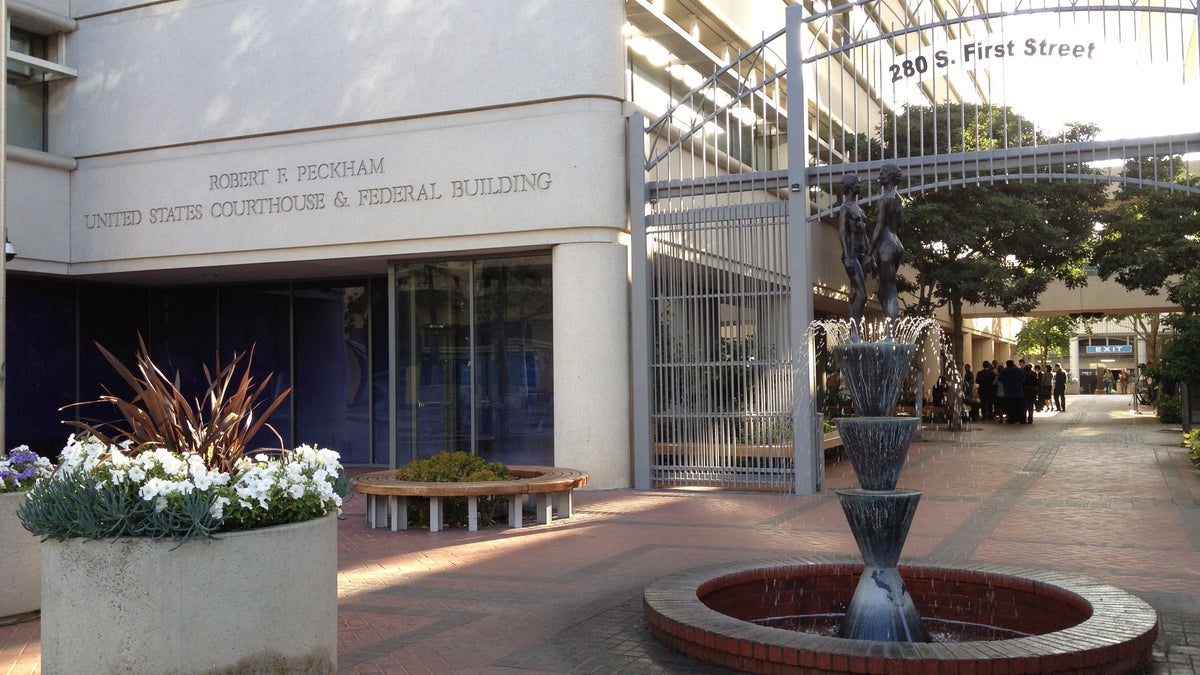Apple demands $380M in patent trial, but Samsung wants to pay $52M
The amount requested by Apple during opening arguments in a damages retrial is less than the $450 million awarded by a jury last year. And Samsung's proposal is much lower.

The figures come on top of the $600 million Samsung already has to pay after a judge vacated about $450 million of the original award.
Apple attorney Harold McElhinny and Samsung attorney Bill Price made the comments during opening statements here at a retrial in the United States District Court for the Northern District of California. A new jury of eight people has been assembled to determine how much more Samsung owes Apple for infringing on five patents related to the iPhone's design and functionality.
"We will hear a lot from Samsung, saying no one would have purchased Apple products," McElhinny said. "But in its heart, Samsung knew it was a two-horse race."
He pointed to an internal Samsung document as "conclusive evidence Apple lost sales because of Samsung."
Apple v. Samsung redux: What you need to know (FAQ)
Samsung's Price, meanwhile, said "Apple is asking for more money than it's entitled to."
He noted that customers didn't just buy Samsung products for bounce-back screens and other features that infringed on Apple patents. Rather, they also sought out bigger screens, removable batteries, 4G LTE service, and other items.
McElhinny arrived at the $380 million amount based on lost profits of about $114 million, Samsung's profits of about $231 million, and reasonable royalties of approximately $35 million. Apple estimates it would have sold 360,000 devices if Samsung hadn't released infringing rivals. He noted that Samsung sold 10.7 million infringing devices, generating $3.5 billion in revenue.
"In a fair fight, that money should have gone to Apple," McElhinny said.
Price, meanwhile, said Apple shouldn't receive any money for lost profits, $52.7 million for Samsung's profits, and royalties of only $28,452 because the patents have limitations.
The retrial related to damages kicked off Tuesday with jury selection. It's slated to last about six days before the case is turned over to the jury -- composed of six women and two men -- for deliberation.Judge Lucy Koh on Tuesday asked Apple and Samsung to again hold settlement talksbefore another trial slated for March. The parties agreed to submit a proposal by January 8.
Apple originally filed suit against Samsung in April of 2011, accusing the Korean company of copying the look and feel of its products. Samsung countersued two months later over patent infringement and said it was at work on touch-screen phones with giant rectangular screens and rounded corners well before Apple showed up. The initial trial, which stretched more than three weeks in August of 2012, wrapped both of those cases in one, somehow squeezing together the patent infringement issues, alongside antitrust claims, and even trade dress issues.
In August of last year, a nine-person jury sided with Apple on a majority of its patent infringement claims against Samsung. At that time, the jury awarded Apple $1.05 billion in damages, much less than the $2.75 billion sought by the Cupertino, Calif., electronics giant. Samsung, which asked for $421 million in its countersuit, didn't get anything.
However, Koh in March ordered a new trial to recalculate some of the damages in the case, striking $450.5 million off the original judgment against Samsung. What that means is Samsung is still on the hook for about $600 million in damages, but a new jury has to decide how much else it owes.
The products in question include the Galaxy Prevail, Gem, Indulge, Infuse 4G, Galaxy SII AT&T, Captivate, Continuum, Droid Charge, Epic 4G, Exhibit 4G, Galaxy Tab, Nexus S 4G, Replenish, and Transform. The Prevail in particular racked up $57.9 million of the damages tally, which Koh said was a failure on the jury's part, since the device was found to infringe only on utility patents, and not on design patents.
McElhinny spent a little less than an hour Wednesday morning outlining the ways Samsung infringed on Apple products and that it did so intentionally. He noted that the case is about one question - how much Samsung owes Apple for infringing its patents. McElhinny also called Samsung Apple's "star witness," saying internal documents will show the company set out to copy the iPhone when designing its new smartphones.
"The company that broke the law took in $3.5 billion," McElhinny said. "At the end of this case, you will decide how much of that $3.5 billion Samsung should rightfully return to Apple for the damage it has done to us."Samsung's Price, however, called Apple's patents limited and said some similar-looking Samsung devices were found not to infringe on its patents. That means there are some boundaries to what Samsung owes Apple, he said.
He also spent much of his one-hour argument detailing reasons why consumers choose Samsung devices over those from Apple. Reasons include price, lifetime of the phones, screen size, and the fact Samsung runs Android.
"The people who bought Samsung phones, who chose Samsung, didn't choose Samsung because of those [infringing] features," Price said. "They chose Samsung because of the differences."
Updated at 10:50 and 11:45 a.m. PT with information about Samsung's proposal.

